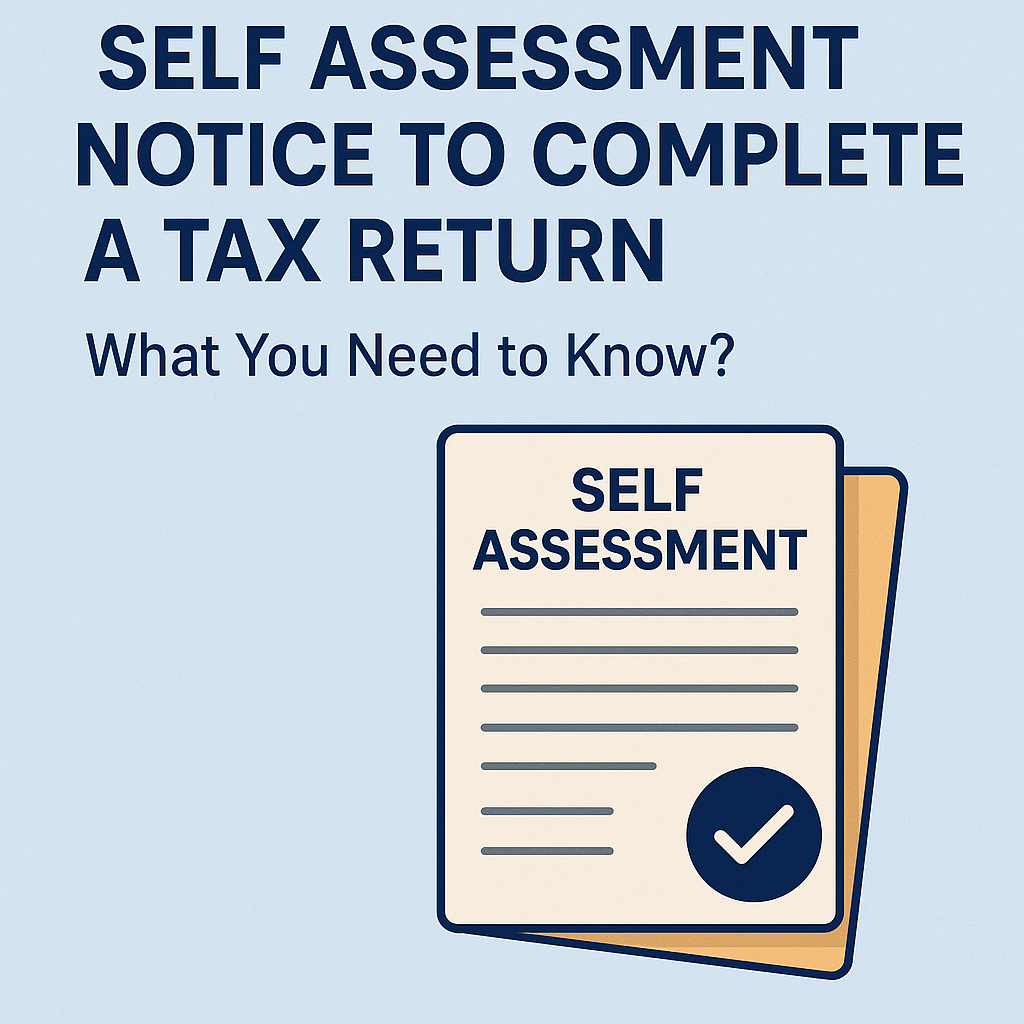
If you’ve received a Self Assessment Notice to Complete a Tax Return from HM Revenue & Customs (HMRC), it’s essential to understand what it means and how to act. Ignoring this notice can lead to penalties and unnecessary stress. In this guide, we’ll explain everything you need to know to stay compliant and avoid trouble with the tax authorities.
What Is a Self Assessment Notice?
A Self Assessment Notice is a formal notification from HMRC telling you that you’re required to submit a tax return for a specific tax year. This usually means HMRC believes you’ve received income that hasn’t been taxed at source, such as:
- Self-employment income
- Rental income
- Capital gains
- Dividend income
- Foreign income
- Other untaxed income
Even if you’re employed and pay tax through PAYE, certain circumstances can trigger a notice.
Why Did You Receive It?
You may receive this notice if:
- You registered as self-employed
- You earned more than £1,000 outside of PAYE (e.g., side jobs, investments)
- HMRC reviewed your records and determined you need to declare additional income
- You claimed Child Benefit but earned over £50,000
- You requested a tax refund or adjustment
Key Deadlines to Know
Meeting HMRC deadlines is critical:
- Registration Deadline: 5 October (if you’re filing for the first time)
- Paper Tax Return Deadline: 31 October
- Online Tax Return Deadline: 31 January
- Payment Deadline: 31 January (for the previous tax year)
Late submissions or payments can result in automatic penalties.
How to Complete the Tax Return
- Register with HMRC (if new to Self Assessment)
- Gather your financial records: income, expenses, bank statements, P60s, etc.
- Log in to your HMRC online account
- Complete the return sections based on your income type
- Submit it by the deadline
- Pay any tax due
If you’re unsure how to complete it, consider consulting a tax adviser or accountant.
What Happens If You Ignore the Notice?
Failing to act on your notice can lead to:
- £100 late filing penalty (even if no tax is due)
- Daily penalties after 3 months
- Interest on unpaid tax
- Possible investigations or legal action
Final Tips
Check your notice carefully – It will include the tax year and submission requirements
Keep records for at least 5 years after the submission deadline
Use HMRC’s official portal to avoid scams
Act early to avoid last-minute errors or penalties
Conclusion:
A Self Assessment Notice to Complete a Tax Return is not something to take lightly. It’s your legal responsibility to understand and respond promptly. By knowing what’s expected and staying organized, you can manage your tax affairs efficiently and avoid unnecessary fines.